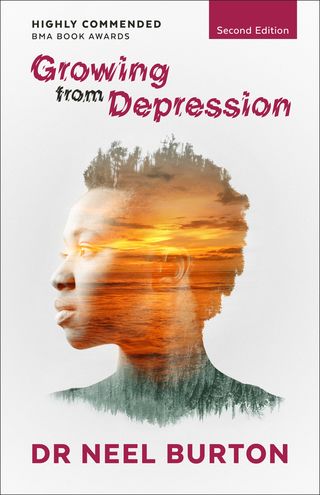[Article updated on 6 September 2017]
Insomnia—difficulty in falling or staying asleep—affects as many as 1 in 3 people, and almost anyone could do with better, more restorative sleep. Insomnia usually becomes a problem if it occurs on most nights and causes distress or daytime effects such as fatigue, poor concentration, and irritability.
The relationship between insomnia and depression is far from simple, as insomnia can both cause and be caused by depression. Insomnia not only predisposes to depression but also exacerbates existing depressive symptoms, making it harder to pull through. Insomnia also predisposes to other mental disorders such as anxiety disorders and psychotic disorders; to physical problems such as infections, high blood pressure, obesity, and diabetes; and to motoring and other accidents.
Aside from depression, common causes or contributors to insomnia include poor sleeping habits, other mental disorders such as anxiety disorders and psychotic disorders, physical problems such as pain or shortness of breath, certain prescription medications, and alcohol and drug misuse.
The most important causes of short-term insomnia (the commonest type of insomnia) are a stressful life event, a poor sleeping environment, and an irregular routine.
If you are suffering from insomnia, there are a number of simple measures that you can take to resolve or at least reduce the problem:
1. Set up a strict routine involving regular and adequate sleeping times (most adults need about seven or eight hours sleep every night). Allocate a time for sleeping, for example, 11pm to 7am, and don’t use this time for anything else. Avoid daytime naps, or make them short and regular. If you have a bad night, avoid sleeping late, as this makes it more difficult to fall asleep the following night.
2. Devise a relaxing bedtime routine that enables you to wind down before bedtime. This may involve breathing exercises or meditation or simply reading a book, listening to music, or watching TV.
3. Enjoy a hot, non-caffeinated drink such as herbal tea or hot chocolate. In time, your hot drink could become a sleeping cue.
4. Sleep in a familiar, dark, and quiet room that is adequately ventilated and neither too hot nor too cold. Try to use this room for sleeping only, so that you come to associate it with sleep. In time, your room could become another sleeping cue.
5. If sleep doesn’t come, don’t become anxious or annoyed and try to force yourself to sleep. The more aggravated you become, the less likely you are to fall asleep. Instead, try to clear your mind and relax. For example, I find that making myself feel grateful for something soon sends me off to sleep. Alternatively, get up and do something relaxing and enjoyable for about half an hour before giving it another go.
6. Exercise regularly. This will also help you with your low mood. However, don’t workout too close to bedtime as the short-term alerting effects of exercise may make it harder to fall asleep.
7. Reduce your overall stress. At the same time, try to do something productive or enjoyable each day. As da Vinci said, a well-spent day brings happy sleep (and a well- spent life brings happy death).
8. Eat a wholesome evening meal with a good balance of protein and complex carbohydrates. Eating too much can make it difficult to fall asleep; eating too little can disturb your sleep and decrease its quality.
9. Avoid caffeine, alcohol, and tobacco, particularly in the evening. Alcohol may make you fall asleep more readily, but it decreases the overall length and quality of your sleep.
10. If insomnia persists despite these measures, speak to your doctor. In some cases, insomnia has a very specific cause such as a physical problem or an adverse effect of your medication that requires your doctor’s attention.
Other interventions
Behavioural interventions such as sleep restriction therapy or cognitive-behavioural therapy can be helpful in some cases and are preferable to sleeping tablets in the long-term.
Sleeping tablets can be effective in the short-term, but are best avoided in the longer term because of their adverse effects and high potential for tolerance (needing more and more to produce the same effect) and dependence/addiction.
Retail, over-the-counter sleeping remedies often contain an antihistamine that can leave you feeling drowsy the following morning. If you decide to use such remedies, be sure not to drive or operate heavy machinery the next day.
Herbal alternatives are usually based on valerian, a hardy perennial flowering plant with heads of sweetly scented pink or white flowers. If you are considering a herbal remedy, do speak to your doctor, particularly if you’re already on medication, or are pregnant or breast-feeding.
Neel Burton is author of Growing from Depression, The Meaning of Madness, The Art of Failure: The Anti Self-Help Guide, Hide and Seek: The Psychology of Self-Deception, and other books.
Find Neel Burton on Twitter and Facebook





